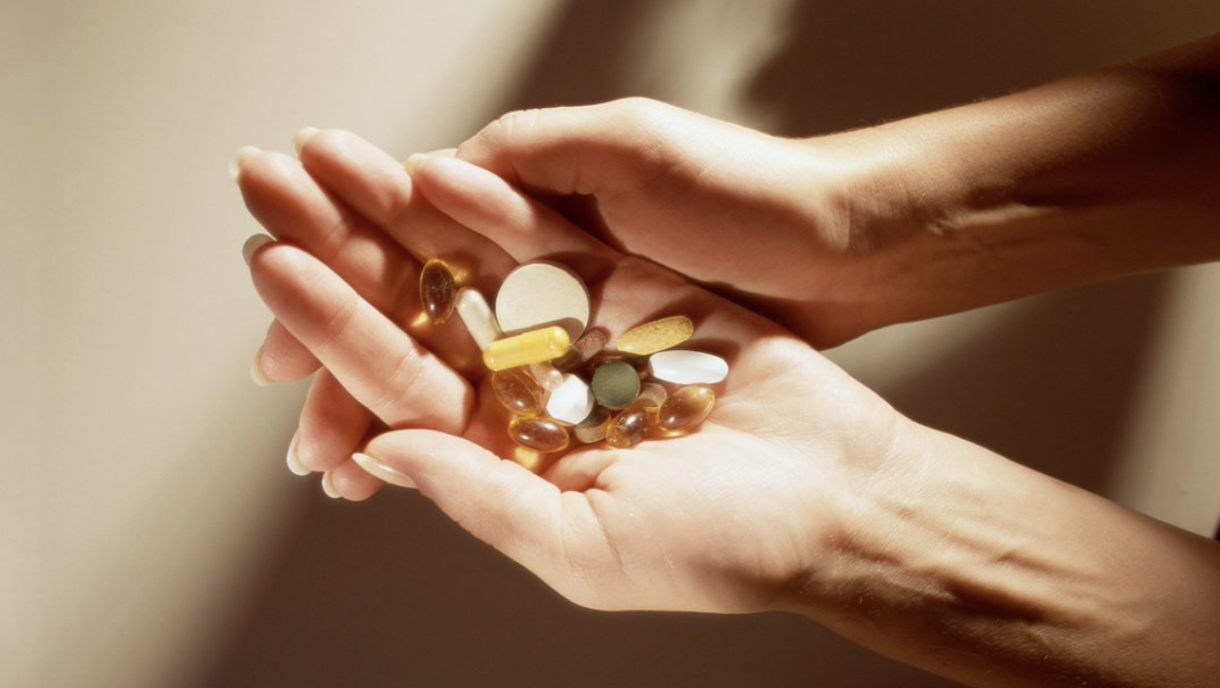The Best Supplements For Women Over 50
/Navigating the world of supplements can feel like diving into an endless sea of options, especially as we age and our bodies evolve. While our primary source of essential nutrients should always be a balanced diet—check out my Top 10 Foods For Aging Well blog post here—the reality is that our plates don't always cover all the bases. That's where supplements can come in and bridge the gap between what we eat and what our bodies need.
For women over 50 and 60—who are in the middle of menopause or at the tail end of it—certain nutrients take center stage in the quest for optimal health and well-being. Below, I’ll tell you about each of them.
1. Vitamin D
Often dubbed the sunshine vitamin, vitamin D is a must-have for all women, but especially those over 50. With sun exposure dwindling and dietary sources limited, a vitamin D supplement can help maintain your bone health and regulate your blood pressure. Aim for 1,000 to 2,000 mg daily to reap the benefits. Bonus: vitamin D also helps with the absorption of calcium (see below).
2. Calcium
For how many “Got Milk” commercials there were in the 90s and early aughts, it’s shocking that 90 percent of women fall short on this bone-building mineral, which is necessary for maintaining good bone health and staving off osteopenia and osteoporosis. To meet the recommended daily intake of 1,000 to 1,200 milligrams, consider incorporating more organic dairy, broccoli, and kale into your meals. You can also try these Milk Chocolate Calcium Chews, which feel like a fun treat I get to have while fulfilling my calcium needs.
3. Magnesium
Magnesium is often overlooked, even though it shouldn’t be—especially during menopause. This mineral aids in maintaining bone density and it can even help alleviate symptoms of depression and anxiety. While black beans, edamame, and spinach offer some magnesium, consider a magnesium supplement like this one from Pure Encapsulations. There are a lot of types of magnesium out there, but glycinate is the most bioavailable.
4. Probiotics
Some experts say that all illnesses, diseases, and symptoms begin in the gut—and that’s why gut health is so important. Taking probiotics can help maintain a healthy gut microbiome, potentially reducing symptoms like bloating and constipation, as well as hot flashes and night sweats (looking at you menopausal readers!). Ideally you want a probiotic supplement with 50 to 100 billion CFU and a variety of bacteria strains. My go-to brands for probiotics are Renew Life and Garden of Life.
5. Fiber
If you want to stay regular, avoid constipation, prevent colon cancer, lose weight, and so much more, you’ll add more fiber to your diet ASAP. Most women fall short of the recommended 25 to 30 grams per day, which can impact insulin resistance and overall digestive health. I recommend incorporating fiber-rich foods like leafy greens, cabbage, steel cut oats, beans, and lentils into your diet, and considering a supplement if needed, like these fiber gummies.
6. Vitamin B12
Vitamin B12 is essential for cognition, mood, and energy levels, particularly for vegetarians and vegans who may fall short on dietary sources. Fortunately, you can get B12 easily through supplements like these vegan gummies (can you tell I like taking gummies?). However, you want to avoid over-supplementation of B12 and folic acid, which may increase your risk of colorectal cancer.
7. Protein
I cannot stress the power of protein enough! It’s last on this list, but it should be your top priority! Not only does protein help with blood sugar regulation and insulin resistance, it helps our body rebuild muscle, regulate our appetite, AND it’s a key part of manageable and sustainable weight loss. Aim for at least 100 grams of protein per day (I have two days of sample high protein meal plans here) and if you need a protein powder to reach that number, check out my 5 Favorite Protein Powders On The Market.
A note on lifestyle factors
In addition to taking supplements like these, I want to acknowledge that lifestyle factors also play a crucial role in maintaining health as we age. Regular exercise, adequate sleep, stress management, and staying hydrated are all essential components of optimal well-being. Exercise, particularly weight-bearing exercises like walking, jogging, or strength training, can help maintain bone density and muscle mass, reducing the risk of falls and fractures. Additionally, engaging in activities that promote mental and emotional well-being (like meditation, yoga, and spending time with loved ones) can contribute to overall health and quality of life.
As always, your individual needs may vary, so I recommend consulting with your healthcare provider or registered dietitian to tailor your supplement regimen to your specific health profile and lifestyle. By adding these nutrients to your diet and daily life, you can support your overall health and well-being well into the future!
Xo,
Renata

